When the holiday season begins, we often find ourselves in a reflective mood. As an annual tradition we take this chance to look back on the best books we encountered during the last year. Now, this is not a “best books of 2013″ list, but a list of the best books the Chefs read during 2013 — the books might be classics, a few years old, or brand new. This is one of the great things about books in all forms — they endure, invite visitation and revisitation, and beckon with ideas. Here’s Part 1 of our list, Part 2 will post tomorrow.
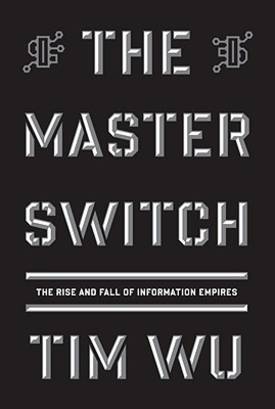 Joe Esposito: The Kitchen’s tradition of asking each Chef to name his or her “best book” of the year puts me in an awkward position, as I read and reread classics regularly. So do I put The Odyssey on the list? I’m finishing it now and plan to get started on a rereading of The Iliad right away. Do I put Crime and Punishment on the list or Balzac’s Cousin Bette? Let’s stick closer to home this year.
Joe Esposito: The Kitchen’s tradition of asking each Chef to name his or her “best book” of the year puts me in an awkward position, as I read and reread classics regularly. So do I put The Odyssey on the list? I’m finishing it now and plan to get started on a rereading of The Iliad right away. Do I put Crime and Punishment on the list or Balzac’s Cousin Bette? Let’s stick closer to home this year.
My best book of the year, with the Kitchen’s purpose and audience in mind, is The Master Switch by Tim Wu. This is a history of communications policy since the advent of the old AT&T, which managed the neat trick of getting what was in effect a government guarantee on its profits. Wu’s thesis is that all communications services aspire to monopoly positions, but over time new technologies, especially low-cost ones, subvert the designs of corporate chieftains and the feckless government officials who regulate them.
This is Tim Wu’s book, but it is clearly The World According to Google. Google is the emergent hero in this book, not only for its seemingly magical technology but also for its support for open systems. Wu perhaps does not clearly see that open is as open does and that Google is as canny and self-interested as ExxonMobil or any large research library. Google’s deeply discriminatory search engine (it will not index content behind a paywall, which is where most of the good stuff resides) is a source of enormous economic power, as all Kitchen readers know all too well.
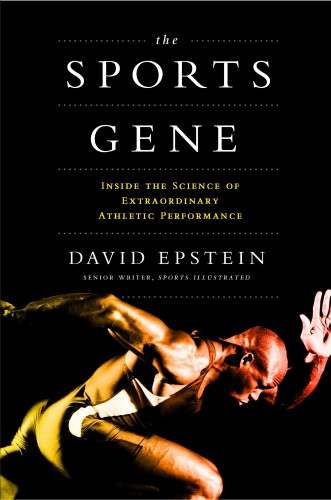 Kent Anderson: I love non-fiction. Over many dozens of books, the best non-fiction confirms the maxim that truth is stranger than fiction. The Sports Gene: Inside the Science of Extraordinary Athletic Performance, is yet another bit of evidence that well-reported and well-written non-fiction can be truly mind-blowing. Written by a Sports Illustrated reporter, David Epstein, himself a former collegiate distance runner, this book is compelling from beginning to end, and does not suffer from bloat or filler. Whether you’re an accomplished athlete or, like me, someone who merely tries to overcome nature’s limitations while nursing a low-level endorphin addiction, you will find this book interesting.
Kent Anderson: I love non-fiction. Over many dozens of books, the best non-fiction confirms the maxim that truth is stranger than fiction. The Sports Gene: Inside the Science of Extraordinary Athletic Performance, is yet another bit of evidence that well-reported and well-written non-fiction can be truly mind-blowing. Written by a Sports Illustrated reporter, David Epstein, himself a former collegiate distance runner, this book is compelling from beginning to end, and does not suffer from bloat or filler. Whether you’re an accomplished athlete or, like me, someone who merely tries to overcome nature’s limitations while nursing a low-level endorphin addiction, you will find this book interesting.
I first heard about my favorite book this year via the ever-reliable “Fresh Air” program on NPR. An interview with Epstein relayed the story of the women’s softball pitcher against some of Major League Baseball’s best hitters. Of course, the story starts out with a surprising result (the MLB hitters couldn’t touch the underhand pitching from the women’s softball pitcher, despite the ball being three times as big and coming at them much more slowly). But the fascinating explanation is the pay off. Want to know the reason? I’ll bet you do.
Want to know why some people can barely train and still excel at some sports? Want to know how important tenacity is to success? Want to know why marathon winners come from Kenya but not Chile or Tibet (despite all three living at altitude)? I’ll bet you do.
Epstein tackles the touchy issue of race very well, likely because science and scientists have tackled it very well. Essentially, the question is why athletes with African ancestry seem to do well at nearly every sport. The answer streams directly from the sands of time and the reliance all races have on Africa as the cradle of hominid life. Want to know more? I’ll bet you do.
I will now contradict myself. Earlier, I used the term “mind-blowing” to describe The Sports Gene. In fact, thinking back on the experience of reading it, I believe a better term is “mind-settling.” This book explained things that I as a recreational athlete and sports fan have been observing, put them in a scientific framework, and put my mind at ease that athletics also works in a sensible way, even if that way is often full of surprising facts and findings. In short, the sources of athletic superiority are not necessarily what “common sense” would indicate.
I highly recommend The Sports Gene as a mind-settling book with strong writing and great stories.
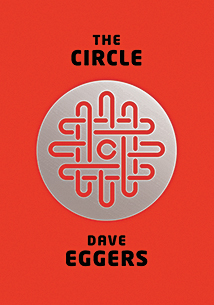 David Crotty: You probably guessed that The Circle would turn up on our list somewhere. It comes from Dave Eggers, bestselling author, founder of McSweeney’s publishing house and cofounder of the international non-profit 826 program offering youth writing and tutoring centers. The Circle is a fictional near-future hybrid of Google and Facebook, a dominant social media company that swiftly comes to be the center of all online activity. The book tells the story of Mae Holland, a young Circle employee just joining the company. It offers a glimpse into both the seductiveness and insularity of Silicon Valley, how life is different, and answers seem so easy once you’re living in a cocoon of wealth and privilege, a world where it’s assumed that every problem can be solved by technology.
David Crotty: You probably guessed that The Circle would turn up on our list somewhere. It comes from Dave Eggers, bestselling author, founder of McSweeney’s publishing house and cofounder of the international non-profit 826 program offering youth writing and tutoring centers. The Circle is a fictional near-future hybrid of Google and Facebook, a dominant social media company that swiftly comes to be the center of all online activity. The book tells the story of Mae Holland, a young Circle employee just joining the company. It offers a glimpse into both the seductiveness and insularity of Silicon Valley, how life is different, and answers seem so easy once you’re living in a cocoon of wealth and privilege, a world where it’s assumed that every problem can be solved by technology.
Questions of the value of privacy and the demands to sacrifice it to drive commerce are at the heart of the book, as well as a sobering look at the strange shifts we’re undergoing in how we relate to one another. As one character explains:
Listen, twenty years ago, it wasn’t so cool to have a calculator watch, right? And spending all day inside playing with your calculator watch sent a clear message that you weren’t doing so well socially. And judgements like “like” and “dislike” and “smiles” and “frowns” were limited to junior high. Someone would write a note and it would say, “Do you like unicorns and stickers?” and you’d say, “Yeah, I like unicorns and stickers! Smile!” That kind of thing. But now it’s not just junior high kids who do it, it’s everyone.
As the Circle progresses and social media participation becomes legally required, lives are ruined, but this never dents the surety with which the company continues to force its highly profitable agenda. The inevitability of these technologies is a key concept, one shared with Chuck Klosterman’s recent book on villains, I Wear The Black Hat. In Klosterman’s chapter on technology villains (Kim DotCom, Julian Assange):
We don’t know if the old way is better (or worse) than the new way. But Assange does not let us choose. He possesses a sweeping technological advantage, and he knows that released information cannot be retracted. He makes us accept his philosophy against our will. This is why Assange can make an argument that openly advocates actions that (in his words) “might be immoral.” Those actions are going to happen anyway, so he doesn’t have to pretend that they contradict the way we’ve always viewed morality. He doesn’t have to convince us he’s right, because our thoughts don’t matter…He believes everything longs to be free. And he will make it happen, because he knows how to do it and we don’t know how to stop him. He’s already beaten everybody. It was never close.
Eggers’ book is entertaining and compelling, filled with Orwellian references (the Circle seems obsessed with sloganeering, “Secrets are Lies”, “Privacy is Theft”) and Vonnegut-esque absurdity (each new responsibility Mae is given comes with an additional screen for her to monitor, filling her cubicle with wall to wall panels of commentary to which she must immediately respond lest she be seen as not a team player). The obsession with metrics and scores should be familiar to anyone struggling with the Impact Factor and the question of whether the value of a researcher’s work can be reduced to a set of numbers.
And every time I’m tempted to think that Eggers takes things too far, and that his assumptions are absurd, Silicon Valley does something like this or this and Eggers seems perhaps too cautious in his vision.
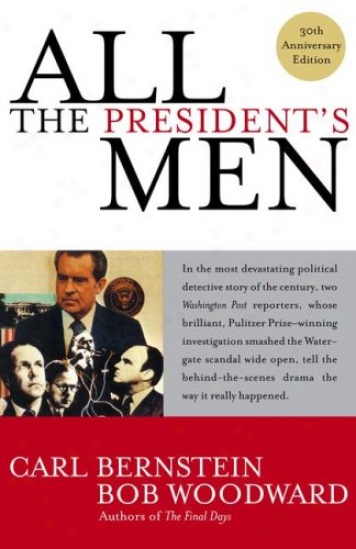 David Smith: I find these posts a special privilege, because it encourages me to reflect back on the things I’ve read this year and consider them in the round, and once again some interesting things have come to light.
David Smith: I find these posts a special privilege, because it encourages me to reflect back on the things I’ve read this year and consider them in the round, and once again some interesting things have come to light.
I’ve only bought one physical book this year; Terry Pratchet’s Raising Steam. I went for the physical book because I remember my dad giving me his copy of Swallows And Amazons one evening with the words, “I think you’ll like this, I did.” Boy was he right. Some day fairly soon, I hope to sit down with my boy and hand over an extremely well read copy of The Colour of Magic, in the hope that it will send him on his own journey through the Discworld. Some things should come down through the years.
I’ve bought 4 self published books, one was just ok, but The Devil’s Fire trilogy by Matt Tomerlin (published direct via Amazon) have been a real treat. They are set during the ‘Golden Age of Piracy’ and are full of (very) lusty types who don’t hesitate to hack each other to pieces at the earliest opportunity. All the famous pirates and their adversaries feature and meet their ends. In short, it’s a cracking set of tall tales.
But to my book of the year–it came out 39 years ago and it recounts one of the most chilling episodes of American politics. Anybody who has followed me on Twitter or Google+ will be aware that I hold some rather strong opinions on the activities of the NSA and our own GCHQ. In short (and please forgive this moment) I believe that their activities represent the first real battle between the rights of the citizen of any nation and the state in the digital era. The fact is that a connected world makes the concept of privacy a matter of rules and guidelines, not physical barriers and restrictions. And so surveillance becomes a matter of banal ease for the state. We so badly need a proper debate here, not the pretzelizing of lawyers trained to twist language and statute way beyond its design parameters. We require of our leaders that they adopt a properly skeptical view of all such matters, so to better judge the needs for regulation at the appropriate levels. And my have they let us down.
In thinking about the revelations of Edward Snowden (principally, not so much Julian Assange or Chelsea Manning) I read All the President’s Men by Carl Bernstein and Bob Woodward. In many ways, the book is not the measure of the incredible events it recounts. Parts of it aren’t particularly well written in my opinion, but what kept hitting me was the fact that there are moments where players in the apparatus of the state are doing in 1972 and 1973, exactly what their modern contemporaries are doing in the present day. At times when I was reading it, I was certain that that I had read about almost exactly the same types of interaction between the press and the state in the Guardian or the New York Times 39 years on. Chilling.
The other point about this book of course is that it represents one of the true high water marks of journalistic endeavor. Over here, the press is struggling to deal with the contempt brought about by phone hacking and the consequences of the Leveson enquiry; The BBC is recovering from a series of calamitous decisions on stories taken by the flagship Newsnight program, and Glen Greenwald and Nate Silver are redefining what a modern journalist should look like. Greenwald particularly is a polarising reporter, but one thing is for sure–investigative journalism is a vital component of a functioning democratic society and 39 years on, the words and actions of Bernstein and Woodward, backed by a robust and brave editorial team, still have much to teach us in the 21st Century.
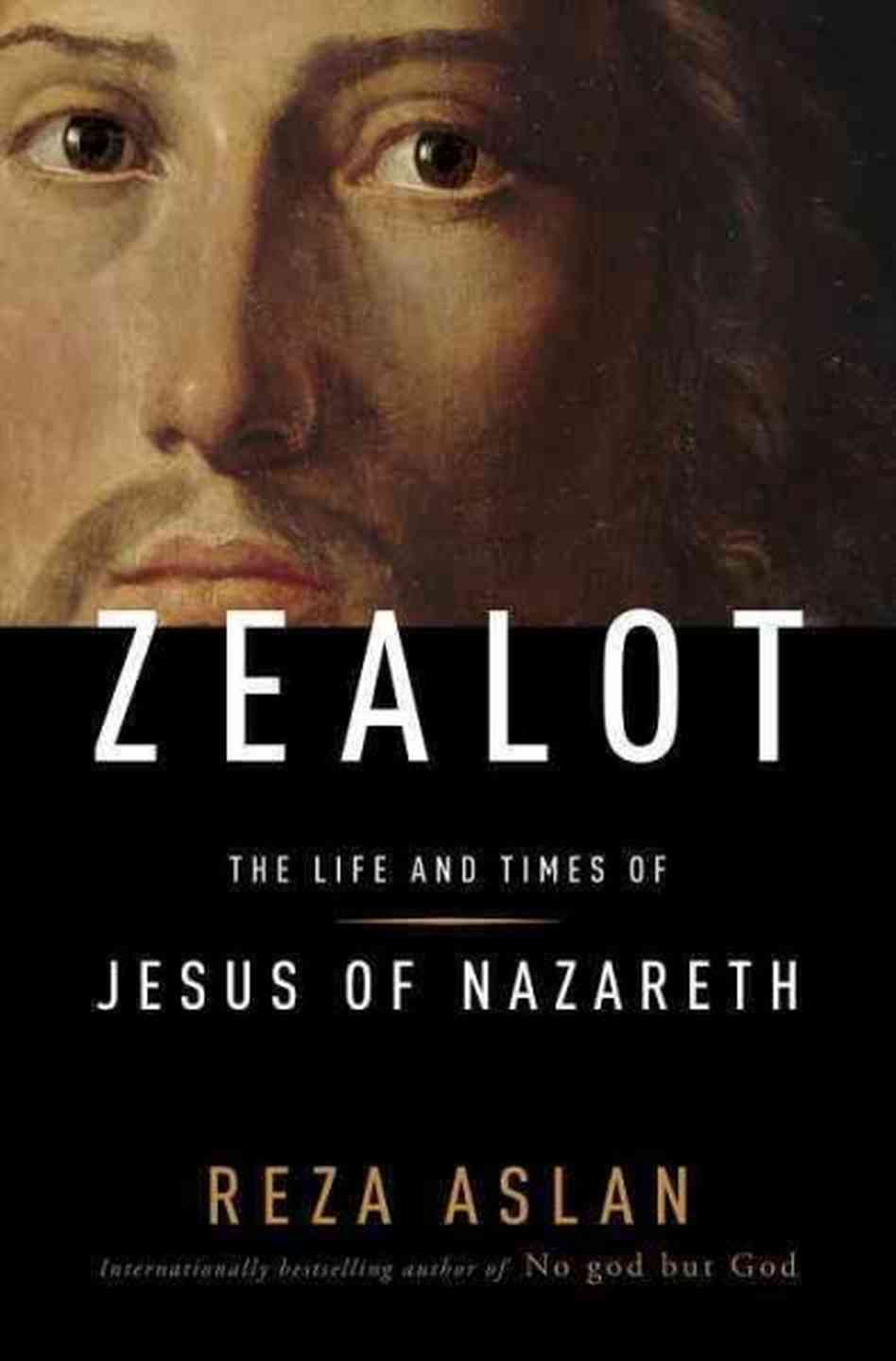 Stewart Wills: While I don’t know if it’s the best book I read this year, one that has stuck with me has been Zealot: The Life and Times of Jesus of Nazareth, by Reza Aslan. Studies of the “historical Jesus” usually begin with a bit of hand-waving about the lack of source material; a nod to the Jewish historian Josephus, whose Jewish Antiquities, written in 94 C.E., contains the earliest nonbiblical mention of Jesus; and then an extensive mining of the four gospels, a highly suspect source, as the only route to getting at Jesus the man. Aslan takes a very different approach, proceeding inductively from evidence about the time and place in which Jesus of Nazareth lived — for which historical material is abundant — to put a very different spin on his personality, goals, and death.
Stewart Wills: While I don’t know if it’s the best book I read this year, one that has stuck with me has been Zealot: The Life and Times of Jesus of Nazareth, by Reza Aslan. Studies of the “historical Jesus” usually begin with a bit of hand-waving about the lack of source material; a nod to the Jewish historian Josephus, whose Jewish Antiquities, written in 94 C.E., contains the earliest nonbiblical mention of Jesus; and then an extensive mining of the four gospels, a highly suspect source, as the only route to getting at Jesus the man. Aslan takes a very different approach, proceeding inductively from evidence about the time and place in which Jesus of Nazareth lived — for which historical material is abundant — to put a very different spin on his personality, goals, and death.
Perhaps most tellingly, the book underscores the fact that Jesus was only one of a crowd of revolutionaries and messiah candidates who worked their way across the Jerusalem stage during the period. It was time of unique friction between the Jewish and Roman worlds that culminated, four decades after Jesus’s death, in the destruction of Jerusalem by Roman armies. The Jesus of Aslan’s historical analysis, far from being a peacemaker with an eye firmly fixed on the next world, emerges as very much a this-world figure whose goals were rooted in the contemporary crisis of Jerusalem and the widespread hatred of its compromised temple oligarchy. In that light, gospel episodes such as the driving of the moneylenders from the temple recast themselves as central, highly subversive acts that ultimately led to Jesus’s crucifixion — the punishment commonly reserved by Rome to make an example of those guilty of sedition.
Aslan also clearly tells the story of the first few decades of the church after Jesus’s death, when, in the aftermath of the failed Jewish revolt against Rome, Jesus’s followers struggled to place a new interpretation on the meaning of his life. In particular, the canonical books of the New Testament — notwithstanding the effort to paper over the controversy in the book of Acts — emerge as a philosophical battleground between the Jerusalem-centered successor movement headed by Jesus’s brother James, and the far-flung efforts of the late convert Paul (who, in Aslan’s telling, appears to have been a very loose cannon indeed). Paul’s version, of course, “won,” and the revolutionary roots of the historical Jesus’s character were lost to history in the gospel retelling — all of the gospels having been written after the Jewish revolt, and decades after Jesus’s death.
For those who have paid close attention to recent scholarship in this area, none of this will be particularly new. But Aslan’s narrative is sharp, readable, and compelling, and offers ample scope for reflection on the roots of the religion that has shaped so much of world history.
—-
More tomorrow in Part 2…
Discussion
9 Thoughts on "Chefs’ Selections: The Best Books Read During 2013 (Part 1)"
Republicou isso em HsrG4444sse comentado:
ss
Fantastic suggestions. I’ve made note.
(Kent has perhaps missed his calling as a book critic!)
Thanks,
Heather
Thanks for this. Glad you didn’t limit the choices to new books. I often find myself looking for old classics to read rather than something new. I particularly agree with ATPM, which may represent the peak of investigative journalism in the U.S. Some would say it’s been downhill ever since!
Very interesting note about Terry Pratchett’s book – and about the persistence of the physical form in the face of the ebook revolution: ebooks make terrible gifts and cannot easily be regarded as heirlooms, can they?! Form follows function. Great selection, thanks.
Joe,
What translations of the Iliad and Odyssey are your reading? I like Fitzgerald and Lattimore the best, although Lombardo is also pretty good.
Kent very cagily gives just enough information (and withholds just enough information) about his favorite book to leave one wanting to buy it to learn the answers. But I hope he won’t mind answering this question: does Epstein deal at all, in the context of race, with why it is that blacks are so conspicuously underrepresented in some sports, like skiing, swimming, and NASCAR, despite their overall athletic abilities? Is the explanation sociological (swimming pools are expensive, and so are ski resorts and high-powered cars), or something more related to the type of athletic ability these sports require?


